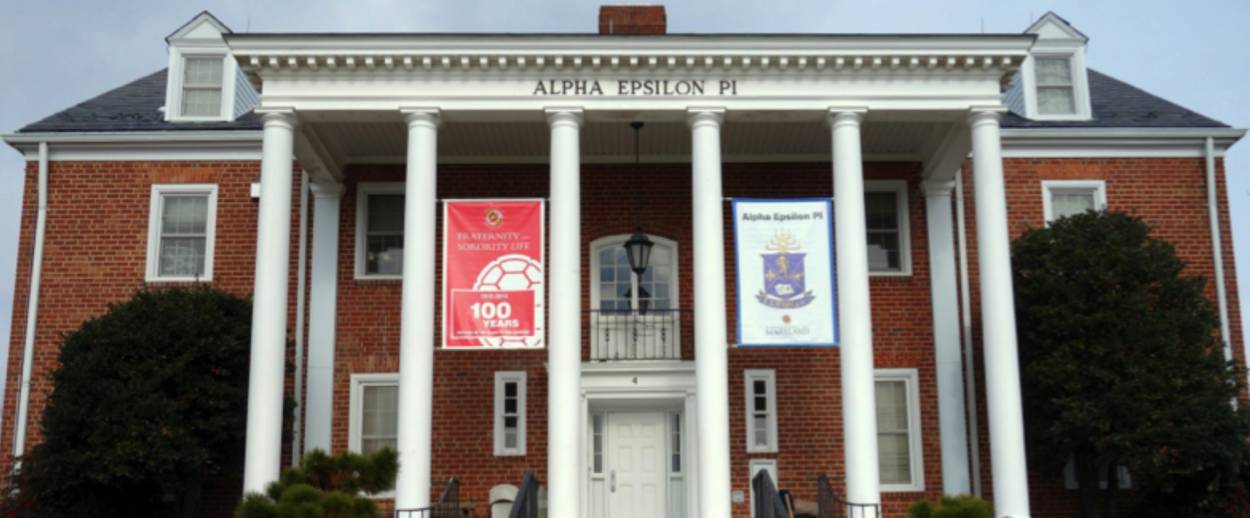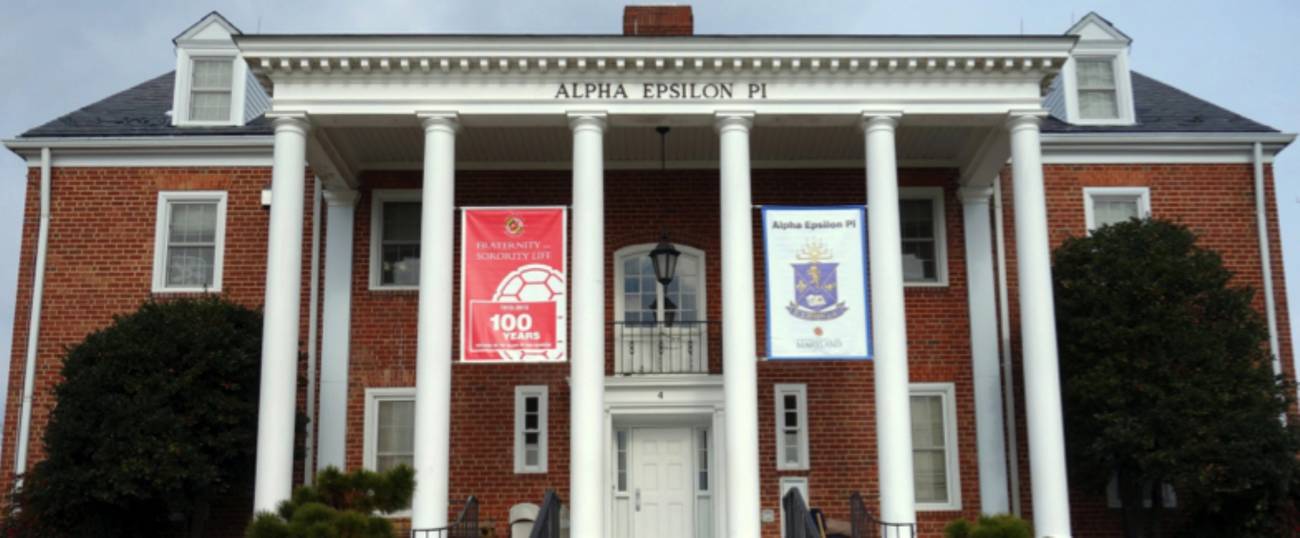New AEPi Study Aims to Measure Organizational Impact On Jewish Identity
Here are the statistics—about relationships, Israel, religion and volunteering—that stand out




A new study about Jewish fraternity Alpha Epsilon Pi, or AEPi, explores whether or not membership in the organization has a intensifying impact on brothers’ Jewish identity.
The report, titled “Assessing the Impact of the Alpha Epsilon Pi Experience,” was commissioned by AEPi itself, at the impetus of alumnus Elan Carr, a district attorney based in Los Angeles, who has been a member of the fraternity since 1986 and was the international president of AEPi when the study was commissioned. Groeneman Research & Consulting, the organization that also completed (along with the Schusterman Foundation) a 2011 BBYO study of Jewish teenagers, conducted the research. “We knew anecdotally [that the fraternity] had an enormous impact on Jewish identity,” said Carr, who added that he wanted the Jewish community to see that the AEPi experience was as much a “game changer” for maintaining Jewish identity in young Jews as a program like Birthright.
In order to test this hypothesis, 1,137 AEPi alumni (from 147 different AEPi chapters) who finished college between 1995 and 2010 (about half were younger than 30), were asked a series of 74 questions about their family-related views and practices (e.g., marrying Jewish, raising Jewish children); the “Jewishness” of one’s social network; involvement in Jewish organizations and activities while in college; Jewish beliefs, values, practices and behaviors (e.g. philanthropic endeavors, volunteering); engagement with Israel; and religious ritual practices and observances. Here are a few statistics that stand out from the 56-page report:
— The study asked participants whether they had volunteered in the past 12 months for both Jewish and non-Jewish organizations. Interestingly, the number of AEPi alumni volunteering for Jewish organizations was slightly less (40%) than other Jewish males (48%, Pew), and slightly higher (50% to 42%) when it comes to non-Jewish organizations. The report, however, does not go into detail about the concentration of Jewish organizations from campus to campus, i.e. the options that are available for each AEPi chapter, and whether or not that impacts the amount of Jewish versus non-Jewish volunteering options available. On a related note, the study finds that 63% of brothers with the “weakest” Jewish background and 86% with the “strongest” Jewish backgrounds participated in other Jewish organizations or activities during college (does not specify which ones).
— Of the alumni in the report that are married (half of the AEPi alumni who responded are married), 80% of them have chosen a Jewish spouse. Similarly, 63% of alumni who are currently in a serious, committed relationship, have Jewish partners. Moreover, of the participants who are not married, 75% of them answered that is was either essential or important for them to marry someone Jewish, or that they preferred to marry someone Jewish. (Comparatively, the 2013 Pew Research study, titled “A Portrait of Jewish Americans,” reported that 57% of America’s Jewish population have married someone of the same religion.) While these numbers are certainly high, the study does not show significant causation in terms of the impact an AEPi experience had in the partnering up of two Jews. In fact, 65% of respondents replied that AEPi did not influence their desire to marry someone Jewish. It also does not take into account a brother’s desire to marry a Jewish person prior to joining. (On a related note, 78% of respondents replied that their parents would be very much or somewhat disappointed if they married a person unwilling to raise their children Jewish). Still, 10% of respondents believe that AEPi either strongly or somewhat influenced their decision to marry someone Jewish.
— When it comes to supporting Israel, 59% of AEPi alumni said that their fraternity experience impacted their sense of pride in the Jewish State. In fact, 80% of alumni have spent time in Israel compared to 43% of the general Jewish population, as reported by Pew. Moreover, 48% of AEPi members cashed in their Birthright for a free trip to Israel (compared to just 20% of the national Jewish population) which may point to participating in Birthright as an intensifying factor rather than, or in addition to, AEPi membership.
— Most AEPi brothers arrive on campus with strong Jewish upbringings, with nearly 67% of them from Conservative or Reform backgrounds (7% are Orthodox, 5% “other” and 21% are “just Jewish”). These statistics are buttressed with others that show that a majority of AEPi members received at least six years of Jewish education in their youth, went to synagogue as a kid, and had bar mitzvahs (94%). This points to the fact that most AEPi brothers already had significant Jewish upbringings before going to college, which means that they perhaps joined AEPi to be with other Jews since that’s already what they were used to. Despite the fact that AEPi members entered into the organization with solid Jewish backgrounds, the study does assert that AEPi had a significant “net positive” impact on the Jewish identities of members of all denominations, averaging over 50% for even the “weakest” Jewish background.